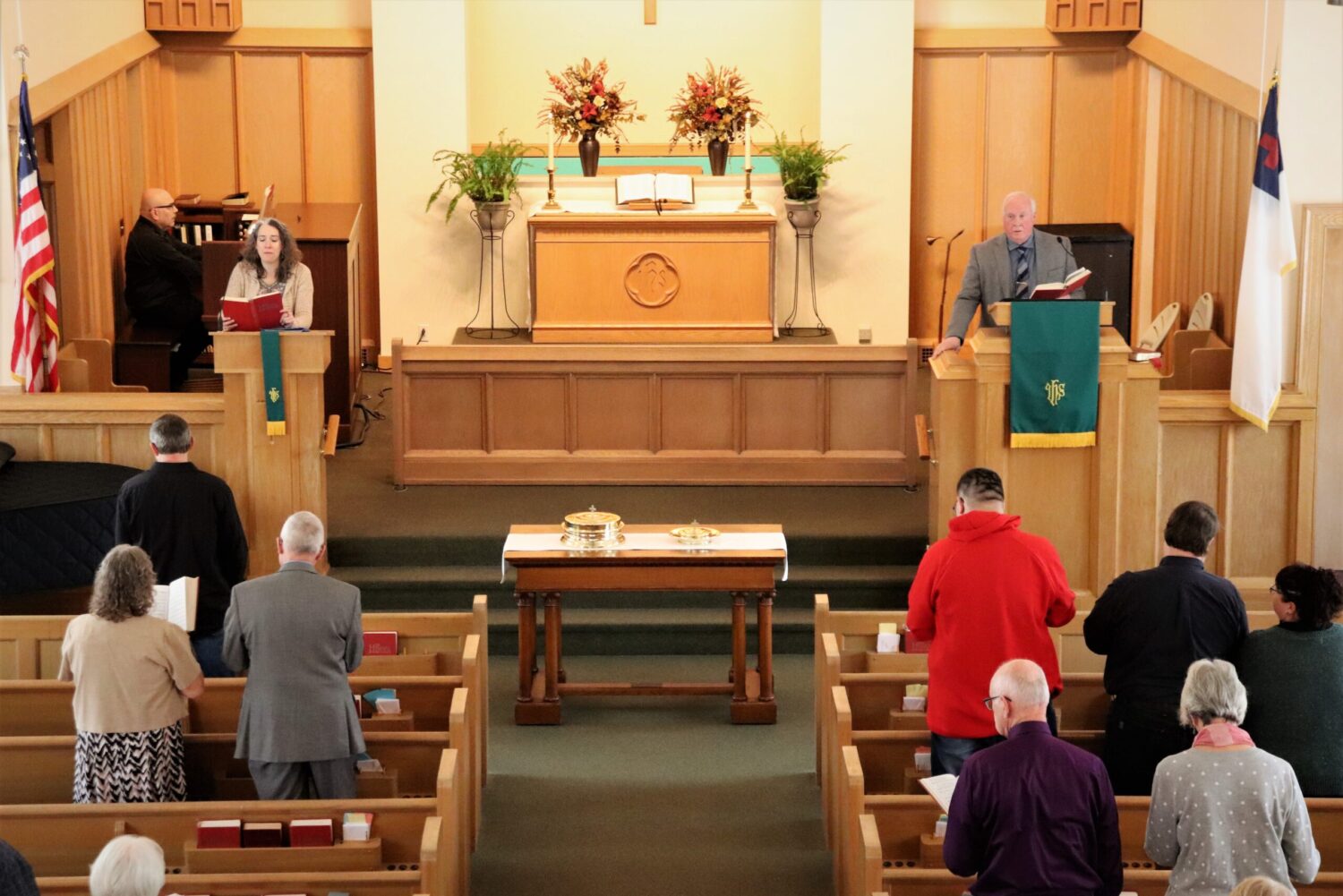Deuteronomy 6:10-12
10 “And when the Lord your God brings you into the land that he swore to your fathers, to Abraham, to Isaac, and to Jacob, to give you—with great and good cities that you did not build, 11 and houses full of all good things that you did not fill, and cisterns that you did not dig, and vineyards and olive trees that you did not plant—and when you eat and are full, 12 then take care lest you forget the Lord, who brought you out of the land of Egypt, out of the house of slavery.
I am not conflating the United States of America with ancient Israel. But while those verses were written very specifically to the people of Israel shortly before they entered the Promised Land, they have some application for us, in this country, now, in 2022. Moses was concerned that the people, the very people that witnessed countless miracles on their way out of Egypt, might forget the God of their deliverance. And, by the way, despite his warning, that was exactly what did happen.
As Moses indicated, they were about to occupy “great and good cities” that they had not built. They were going to be able to eat and drink of crops that they hadn’t planted, wells and cisterns they hadn’t dug. We, the current occupants of this nation, live in a land of plenty, we live in cities, or villages, or towns that we didn’t build, and we eat from farms and drink from vineyards and water sources that we didn’t plant or dig. And, I fear, there are times when we eat and are full that we might be tempted to forget the God who provided all that we have.
We live in a great, though certainly imperfect, nation. Those that ventured across the Atlantic Ocean and planted the seeds of what our country has grown into today recognized that it was only by God’s grace that they survived the journey. They realized it was only by the grace of God that they were able to survive, then flourish, and then become comfortable. They realized that Thanks were in order, not to some generic universal force, but to the God of all creation, the God of the Bible. And so they celebrated Thanksgiving out of a grateful heart.
A number of years later, the concept of a Thanksgiving Day became codified into local and then federal law. Over time the thanks have become somewhat generic…not specifically thanking God, but rather we, as a culture, seem to have developed an attitude of being grateful in a non-directional kind of way; grateful to the universe, grateful for or to each other. This is the very situation that Moses was warning the people of Israel about.
Later in Deuteronomy 6, Moses gives instructions on how the people are to keep from forgetting God as the years pass. They were to instruct their children, regularly, about the God that had provided for their ancestors. The Thanksgiving holiday is a time, traditionally, when families gather together to enjoy a feast together, spend time, watching football, plan out Black Friday shopping trips, and enjoy a plethora of other individual traditions. May I suggest that as we gather this year we make it a point to instruct our children, our grandchildren, and other family members, that we are thankful, not in a generic way, but in a very specific way, to the God of creation? That is one way that we, as Christians, can help to assure that we, as a culture do not forget the God who has delivered us.
For Christians, every day is Thanksgiving Day, every day is Christmas Day, and every day is Easter. And every day is a new day, filled with His mercies anew.
